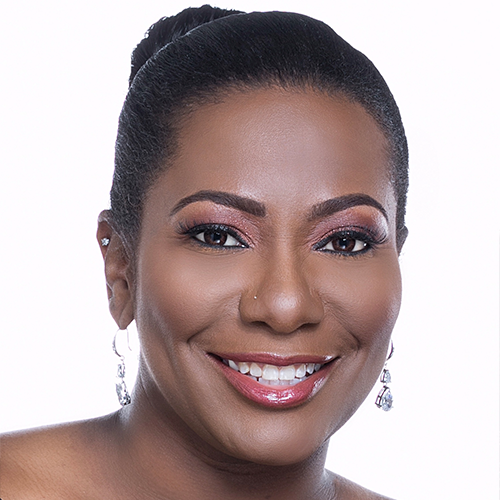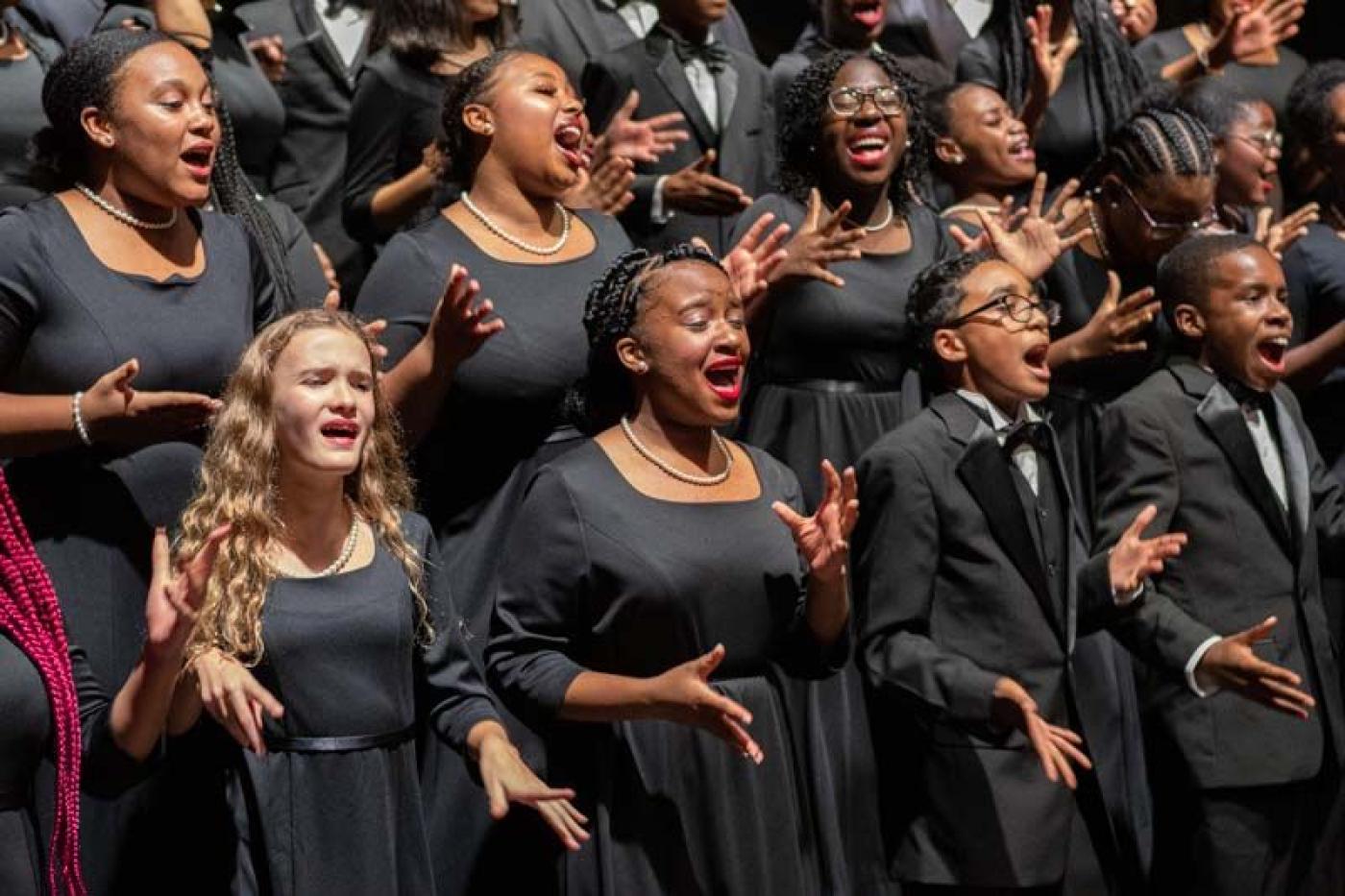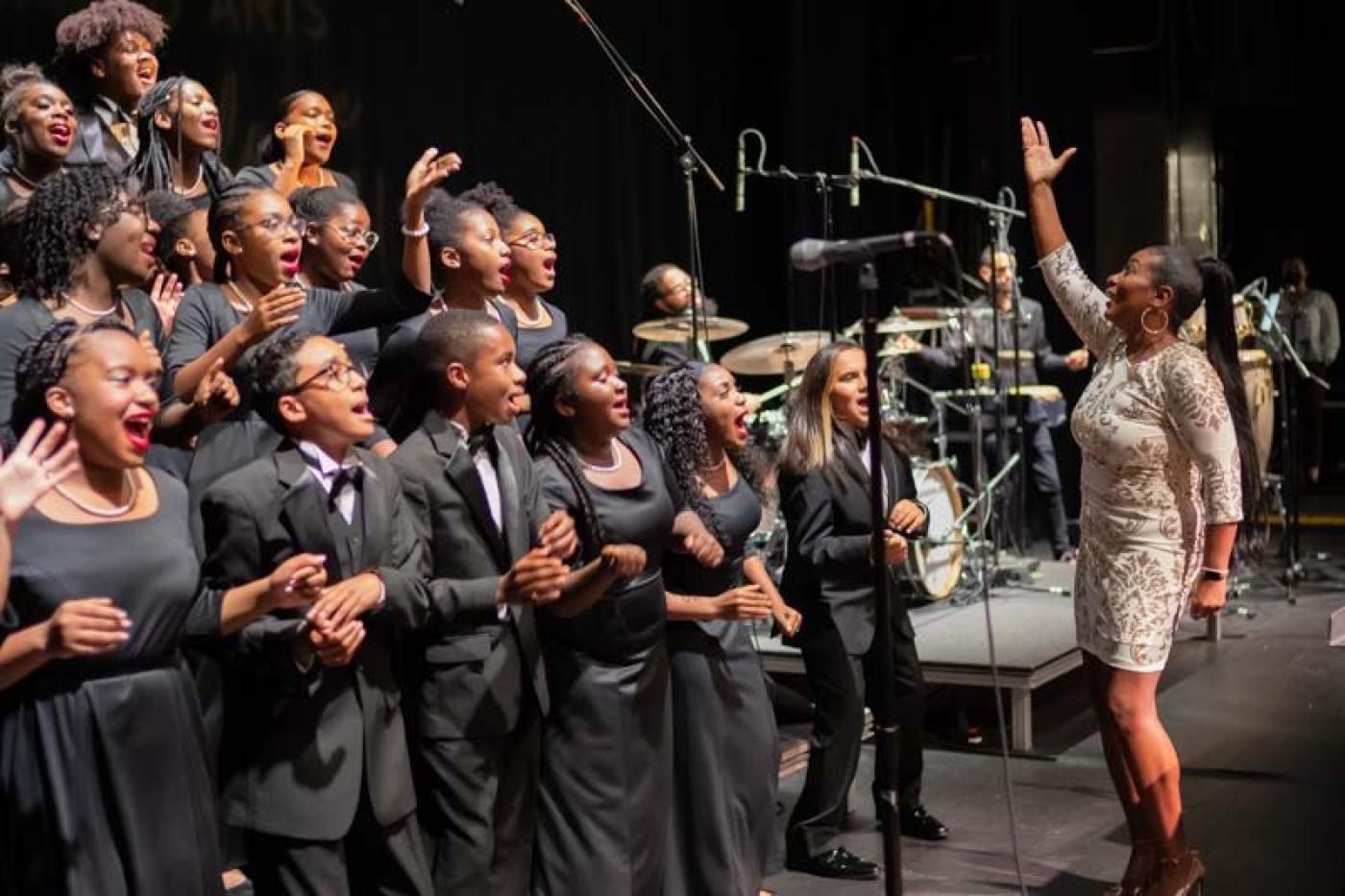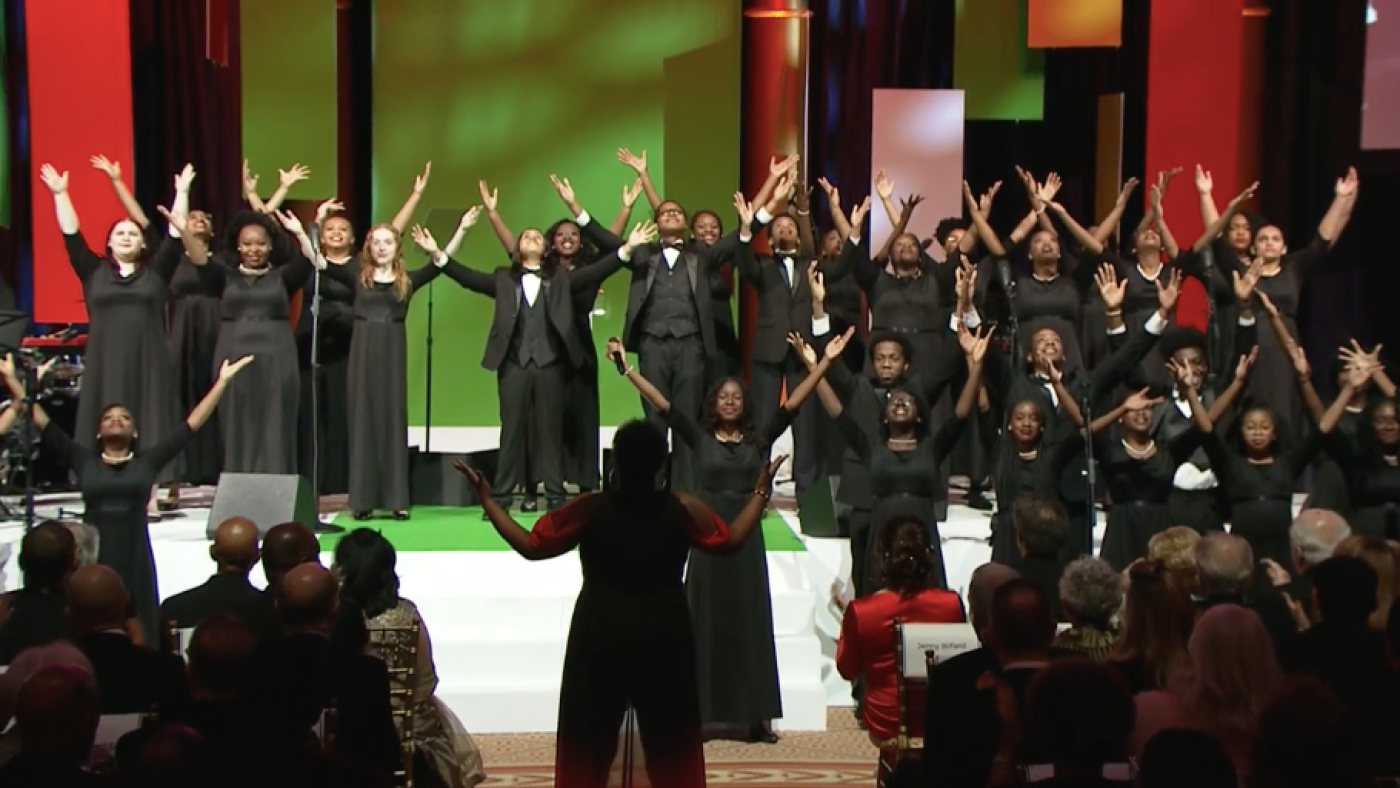It is a universally acknowledged truth that music education holds an invaluable place in society, and is a foundational experience for young minds. Often times, music teachers and directors are a source of inspiration, imparting far more than musical knowledge. Michele Fowlin, Artistic Director of Washington Performing Arts Children of the Gospel Choir, has been that source of inspiration in the public education system, as well as through her work with the Gospel Choir. Ahead of the Gospel Choir’s season finale this Friday, June 2, Ms. Fowlin shares her journey in music, and her thoughts in praise of music education.
Teaching was certainly not the direction I wanted to go in.
After studying music education for a semester at Howard University, I changed my path to vocal performance and pedagogy, with plans to make a living off of singing. I completed my Masters at Howard and became the principal soloist for the University’s traveling choir. This opportunity led to solo recitals across the U.S., Europe, Russia, and the U.S. Virgin Islands. And although performing as a soloist was invigorating, life shifted in way that caused me to seek a more financially consistent career path.
I initially turned to teaching for the stability. Having a young family and being a solo musician did not offer any sort of safety net. In addition to my pedagogy studies at Howard, I always had a private studio, so I felt prepared to step into the classroom. I had no idea how much I would learn, and how much I would love the profession.
After spending 28 years in the public education system and 18 years conducting Washington Performing Arts’s Children of the Gospel Choir, I can confidently say that working with young people has always been my calling, and teaching music offered the perfect balance of what I yearned to do.
I began to see music as an opportunity to teach our young people discipline, excellence, and community. It wasn’t just about teaching them to sing Mozart, Fauré, and Bach. However, as the world shifted and my students changed, so did the need to meet them where they were and what they needed most in order to be successful human beings. When students sign up for choir, it is not just because they love singing. Within music classes, there is an embodiment of “I can be myself here” that students often cannot find in any other classroom. My first priority as an educator is to create and foster that safe space for our young people so we can grow together.
In the classroom environment, I found that I am also a student, constantly learning from the young people around me. I love the environment of reciprocal learning, each and every day. I may not agree with my students’ perspectives, but accepting them and encouraging them to share their thoughts in the classroom created an atmosphere of respect. This atmosphere took me years to cultivate but allowed my students to learn from me, me from them and from each other.
For some high school music students, performing in an ensemble can be frustrating. It is often their first time working toward a common goal with their peers. However, I have found that working as an ensemble prepares students for life! There are going to be ups and downs, and sometimes the big performance does not go as well as they planned. Learning these lessons as a young person is invaluable. Students learn early on that they are connected to their peers and can lean on them to be successful. Music classes give our young people that unique experience.
Participation in music also leads to students’ success in other areas. High school music students have been shown to hold higher grade point averages than non-musicians in the same school (National Educational Longitudinal Study) and 78% of Americans feel learning a musical instrument helps students perform better in other subjects. (Gallup Poll, “American Attitudes Toward Music”). In my personal experience, the highest-performing STEM students were almost always also involved in music classes.
Music also sparks empathy and emotional intelligence. As a language, music allows for connection beyond normal conversation. As much as it creates beautiful, swelling moments that bring students together, it can also carry moments of tension and suspension. What an incredible mirror of life! Often when I first meet students, they are shy, awkward and withdrawn; afraid to use their voice. When our time together is finished, they have grown into confident young adults, ready to take on the real world. This is not so much a testament to my teaching but to the art form: There is something inherently communicative in music that brings students together in the pursuit of excellence.
Excellence is difficult to learn on your own. My job is not just to create excellent musicians but outstanding citizens of life. Through our rehearsals my students learn to lift each other up and encourage each other to be the best they can be. As they prepare for concerts and conquer increasingly difficult music, they learn that anything is possible with hard work and dedication. With Children of the Gospel Choir, I have let students take the lead in recent years, planning and producing their own moments of creativity as well, season finales. This affords me an opportunity to understand and be more in touch with the issues on their minds and the subjects they are passionate about. Providing them the opportunity to take the lead on these projects teaches my students to be agents of change for the things they want to see changed and role models for their peers.
Trust is a difficult concept to create and even harder to sustain. But we, as educators, can gain this by being ourselves. Students will know if you genuinely care and can immediately sense it., which immediately impacts your work with them. For any new teacher, my advice is to be yourself. It does not matter if you are teaching in the Midwest or New York City. The students will receive you for you, and this will create that culture of excellence you desire from them. Find the human in each of your students, and bring them forward through the love of music.
Take Note!
Teachers, parents, students, and music lovers – take note! Welcome to our portal to deepening your love and knowledge of classical music. Explore masterpieces, meet our greatest composers and performers, and learn all things classical with episodes of Classical Breakdown and your host, John Banther. Don’t forget to check out fun and creative activities that accompany your listening experience!



